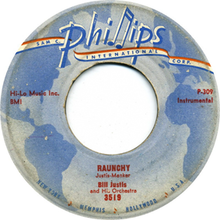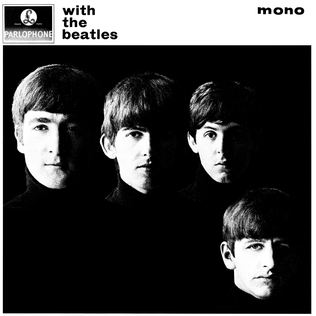
With the Beatles is the second studio album by the English rock band the Beatles. It was released in the United Kingdom on 22 November 1963 on Parlophone, eight months after the band's debut Please Please Me. Produced by George Martin, the album features eight original compositions and six covers. The sessions also yielded the non-album single, "I Want to Hold Your Hand" backed by "This Boy". The cover photograph was taken by the fashion photographer Robert Freeman and has since been mimicked by several music groups over the years. A different cover was used for the Australian release of the album, which the Beatles were displeased with.

Duane Eddy is an American rock and roll guitarist. In the late 1950s and early 1960s, he had a string of hit records produced by Lee Hazlewood, which were noted for their characteristically "twangy" sound, including "Rebel-'Rouser", "Peter Gunn", and "Because They're Young". He had sold 12 million records by 1963.
"My Bonnie Lies over the Ocean", or simply "My Bonnie", is a traditional Scottish folk song that is popular in Western culture. It is listed in Roud Folk Song Index as No. 1422. The song has been recorded by numerous artists since the beginning of the 20th century, and many parody versions also exist.

"Ticket to Ride" is a song by the English rock band the Beatles, written primarily by John Lennon and credited to Lennon–McCartney. Issued as a single in April 1965, it became the Beatles' seventh consecutive number 1 hit in the United Kingdom and their third consecutive number 1 hit in the United States, and similarly topped national charts in Canada, Australia and Ireland. The song was included on their 1965 album Help! Recorded at EMI Studios in London in February that year, the track marked a progression in the Beatles' work through the incorporation of drone and harder-sounding instrumentation relative to their previous releases. Among music critics, Ian MacDonald describes the song as "psychologically deeper than anything the Beatles had recorded before" and "extraordinary for its time".
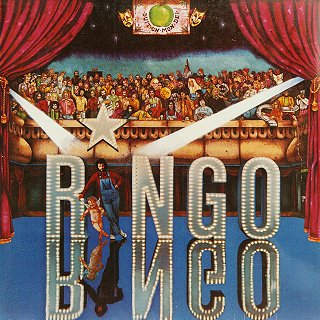
Ringo is the third studio album by English musician Ringo Starr, released in 1973 on Apple Records. It peaked at No. 7 on the UK Albums Chart and No. 2 on the Billboard 200, and has been certified platinum by the RIAA. In Canada, it reached No. 1 on the RPM national albums chart.
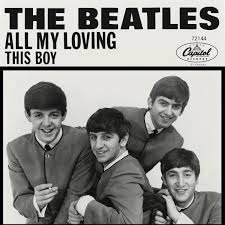
"This Boy" is a song by the English rock band the Beatles, written by John Lennon. It was released in November 1963 as the B-side of the band's Parlophone single "I Want to Hold Your Hand". In the United States, it was issued in January 1964 on Meet the Beatles! which was Capitol Records' reconfigured version of the With the Beatles album. The Beatles performed the song live on 16 February 1964 for their second appearance on The Ed Sullivan Show. An instrumental easy listening arrangement by George Martin, re-titled "Ringo's Theme ", was featured in the film A Hard Day's Night and the United Artists soundtrack album. This version was also issued as a single, reaching number 53 in the US and number one in Canada.
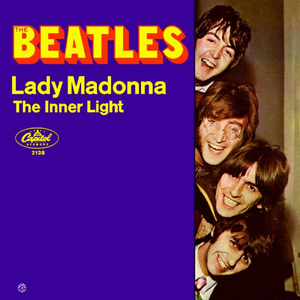
"Lady Madonna" is a song by the English rock band the Beatles, written primarily by Paul McCartney and credited to Lennon–McCartney. In March 1968, it was released as a mono single, backed with "The Inner Light". The song was recorded on 3 and 6 February 1968 before the Beatles left for India, and its boogie-woogie style signalled a more conventional approach to writing and recording for the group following the psychedelic experimentation of the previous two years.
"Till There Was You" is a show tune written in 1950 by Meredith Willson, originally entitled "Till I Met You." It was originally recorded October 25, 1950, by Meredith Willson & his Orchestra and Eileen Wilson. The song was retitled and used in his musical play The Music Man (1957), and also appeared in the 1962 movie version. It is sung by librarian Marian Paroo to "Professor" Harold Hill toward the end of Act Two.

"You've Really Got a Hold on Me" is a song written by Smokey Robinson, which became a 1962 Top 10 hit single for the Miracles. One of the Miracles' most covered tunes, this million-selling song received a 1998 Grammy Hall of Fame Award. It has also been selected as one of The Rock and Roll Hall of Fame's 500 Songs that Shaped Rock and Roll. It was recorded by the Beatles for their second album, With the Beatles (1963). Many other musicians also recorded versions.
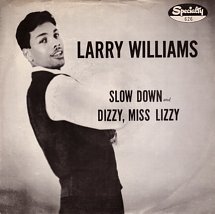
"Slow Down" is a rock and roll song written and performed by Larry Williams. Recorded in 1957, AllMusic writer Stewart Mason describes it as "raucous enough to be punk rock nearly a full two decades before the concept was even in existence." Specialty Records released it as a single in 1958, but only the second-side "Dizzy, Miss Lizzy" reached the record charts. Both songs were later covered by the Beatles.
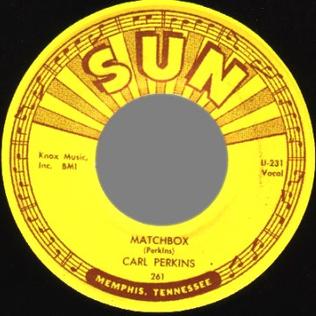
"Matchbox" is a song written and recorded by Carl Perkins and released in 1957. Blind Lemon Jefferson wrote and recorded a song entitled "Match Box Blues" in 1927, which is musically different but which contains some lyric phrases in common.
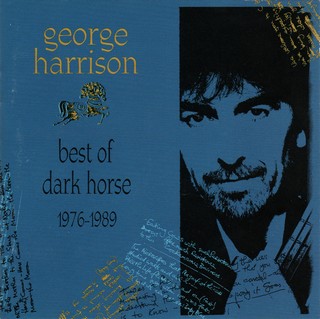
Best of Dark Horse 1976–1989 is a compilation album by English musician George Harrison, released in October 1989. His second compilation, after the Capitol/EMI collection The Best of George Harrison (1976), it contains songs from Harrison's releases on his Dark Horse record label between 1976 and 1987. The album also includes a 1989 single, "Cheer Down", which was Harrison's contribution to the soundtrack of the film Lethal Weapon 2, and two tracks recorded specifically for the collection: "Poor Little Girl" and "Cockamamie Business". Despite the popularity of Harrison's work over this period – both as a solo artist with his Cloud Nine album (1987), and as a member of the Traveling Wilburys – the compilation failed to achieve commercial success.
William Everett Justis Jr. was an American pioneer rock and roll musician, composer, and musical arranger, best known for his 1957 Grammy Hall of Fame song, "Raunchy". As a songwriter, he was also often credited as Bill Everette.

"Kansas City" is a rhythm and blues song written by Jerry Leiber and Mike Stoller in 1952. First recorded by Little Willie Littlefield the same year, the song later became a chart-topping hit when it was recorded by Wilbert Harrison in 1959. "Kansas City" is one of Leiber and Stoller's "most recorded tunes, with more than three hundred versions", with several appearing in the R&B and pop record charts.
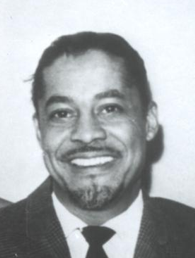
Ernest Aaron Freeman was an American pianist, organist, bandleader, and arranger. He was responsible for arranging many successful rhythm and blues and pop records from the 1950s to the 1970s.

"Be-Bop-a-Lula" is a rockabilly song first recorded in 1956 by Gene Vincent and His Blue Caps.

"Day After Day" is a song by the British rock band Badfinger from their 1971 album Straight Up. It was written by Pete Ham and produced by George Harrison, who also plays slide guitar on the recording. The song was issued as a single and became Badfinger's biggest hit, charting at number 4 in the United States and number 10 in the UK, ultimately earning gold accreditation from the Recording Industry Association of America.

Let It Roll: Songs by George Harrison is the third compilation of songs recorded by English singer-songwriter George Harrison, and the first to span his entire solo career after the Beatles era. The collection was announced on 14 April 2009, the same day that Harrison received a star on the Hollywood Walk of Fame, and was released 16 June 2009, on both CD and in digital format.

"Got to Get You into My Life" is a song by the English rock band the Beatles, first released in 1966 on their album Revolver. It was written by Paul McCartney and credited to Lennon–McCartney. The song is a homage to the Motown Sound, with colourful brass instrumentation and lyrics that suggest a psychedelic experience. "It's actually an ode to pot," McCartney explained. A cover version by Cliff Bennett and the Rebel Rousers, produced by McCartney, peaked at number six in 1966 in the UK. The song was issued in the United States as a single from the Rock 'n' Roll Music compilation album in 1976, six years after the Beatles disbanded. Another cover version by Earth, Wind & Fire from the Sgt. Pepper's Lonely Hearts Club Band film soundtrack peaked at number nine in the US in 1978.
